The Intel Haswell Refresh Review: Core i7-4790, i5-4690 and i3-4360 Tested
by Ian Cutress on May 11, 2014 3:01 AM ESTGaming on Integrated Graphics
For our integrated graphics testing, we use most of the same gaming tests as our discrete gaming range, but at a lower resolution and quality settings (1280x1024, Low) in order to find a reasonable frame rate. Results are given in terms of average and minimum FPS reported. Each of the three CPUs in our test use GT2 / HD 4600 graphics and the same frequencies, meaning that the only difference is clock speeds and threads available. As a result, this should show us how relevant more cores and more threads are for Intel IGP gaming.
F1 2013
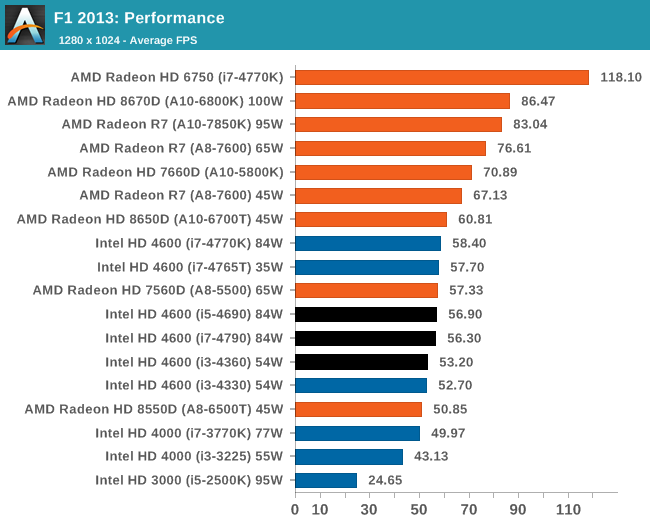
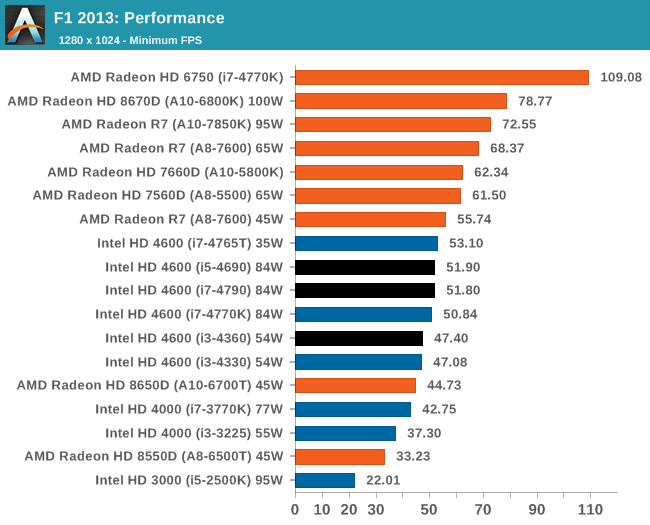
The HD 4600 at 1200 MHz falls just short of 60 FPS average on F1 2013, and moving up from the i3 seems to offer a 6% increase in minimum frame rates.
Bioshock Infinite
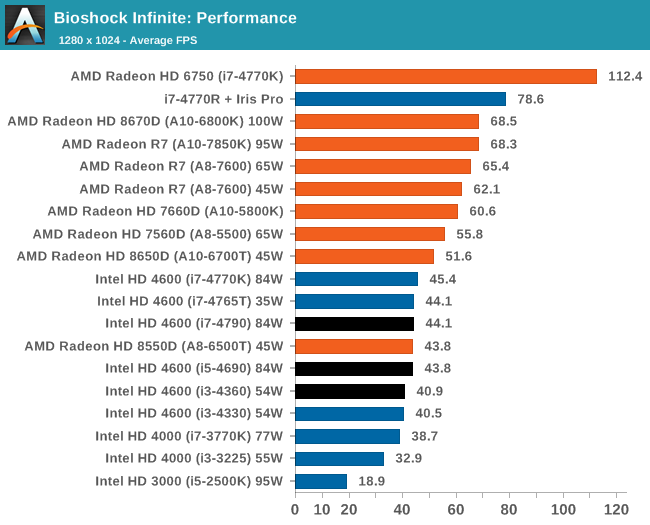
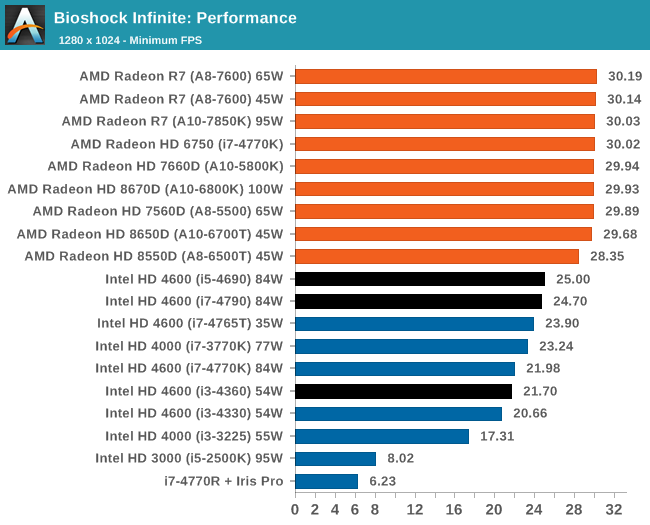
Bioshock Infinite seems memory bound a little, given how good Iris Pro is compared to the HD 4600 scores. There is almost a 10% jump from i3 to i5 here on average FPS and almost 20% in minimum FPS.
Tomb Raider
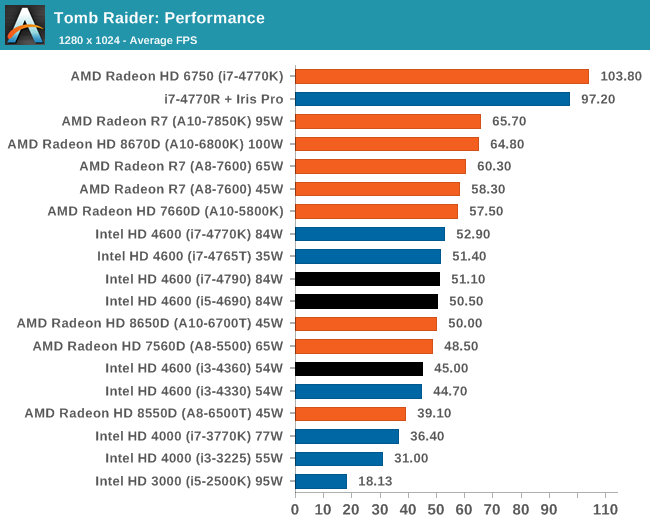
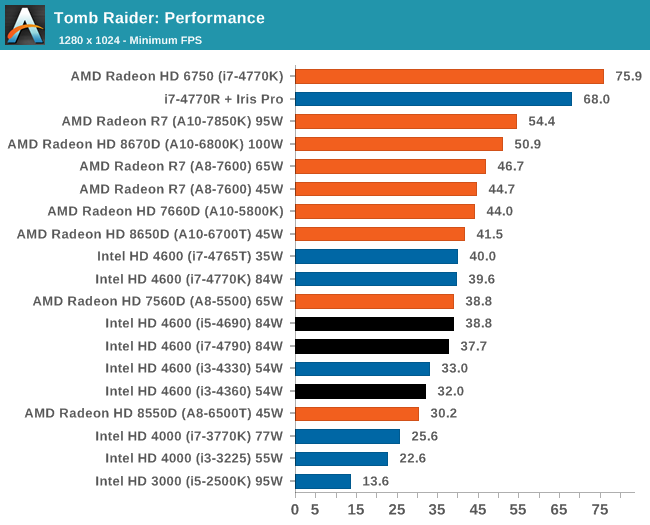
Tomb Raider with discrete GPUs is characteristally CPU agnostic, however moving from an i3 to an i5 gives and extra 5.5 FPS on average in our test.
Sleeping Dogs
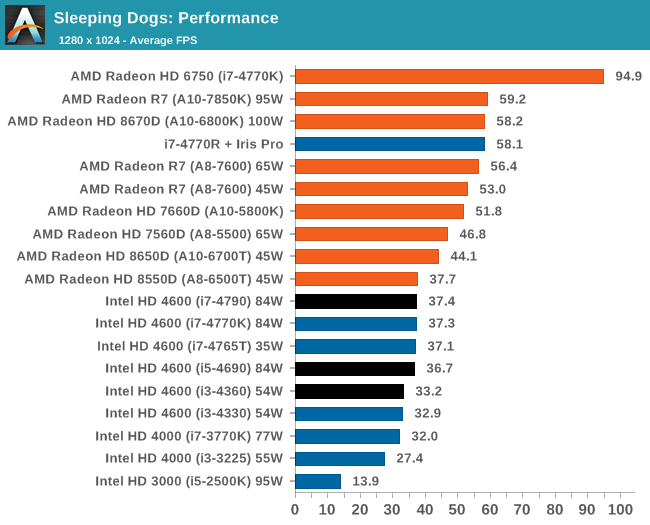
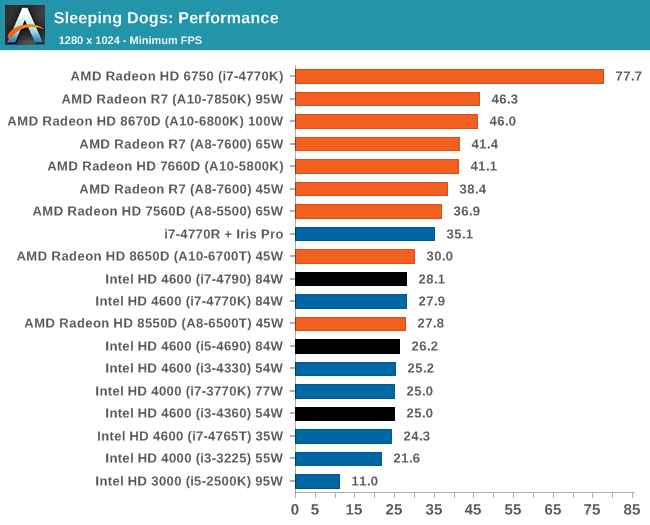
Company of Heroes 2
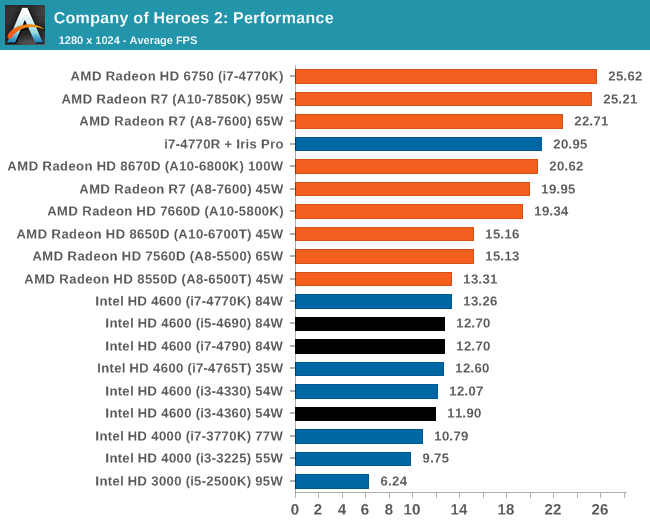
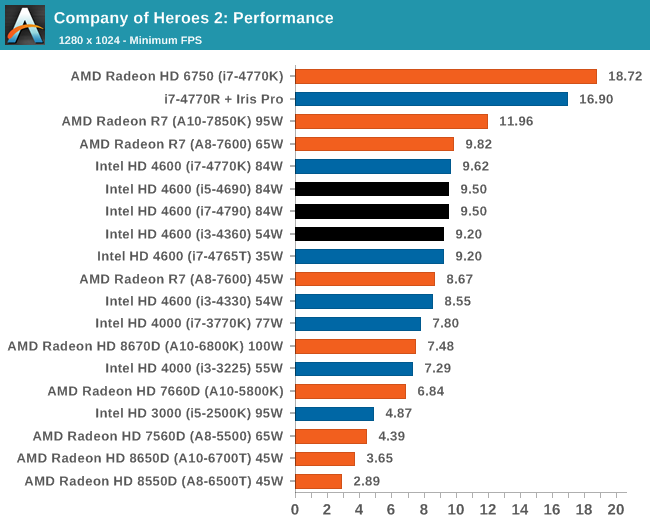
No IGP solution is that well prepared for COH2, although some AMD CPUs and Iris Pro do hit above 20 FPS. We may have to wait another generation to make it more playable and hit 30 FPS at our resolution settings.










130 Comments
View All Comments
AndrewJacksonZA - Monday, May 12, 2014 - link
If you didn't clarify "Human limited" and "CPU limited" I would've understood them the other way around:"Human limited" has the human being as the slowest part of the system with a very fast CPU.
"CPU limited" has the CPU as the slowest part of the system.
Harry Lloyd - Monday, May 12, 2014 - link
Testing performance of these CPUs is completely pointless. The only interesting thing about them is power consumption and thermals.geok1ng - Monday, May 12, 2014 - link
The benchmarks of the Xeon 2687 v2 8c/16Ht imply that the upcoming Extrem Edition haswell-E CPU will be a landslide. 5960X can't come soon enough.Antronman - Monday, May 12, 2014 - link
If the 5960x will be as bad as the 4960x, the 5930k can't come soon enough either.milkMADE - Monday, May 12, 2014 - link
too bad the only sku with 8-cores to give it that landslide are the EE $1000 5960xgeok1ng - Tuesday, May 13, 2014 - link
a xeon 1680 v2 , single socket 8c/16ht costs $1887, and afetr 6 months we still do not know if it is unlocked like the 6cores 1650/1660. So $1000 for a 5960x is not outlandishChrispy_ - Monday, May 12, 2014 - link
Looking at the Z97 vs H97, why are small businesses not allowed to use SRT?Such dumb.
Antronman - Monday, May 12, 2014 - link
How many fucks I give: 0.StrangerGuy - Monday, May 12, 2014 - link
Intel can spam a million SKUs left and right while pretending it's relevant like 10 years ago and it still doesn't mask the fact there are only like 2 chips @ $50 and $220 that makes sense for 90% and 9.99% of desktop users respectively, and most of them are well served by chips sold 3 years ago.Antronman - Monday, May 12, 2014 - link
Actually there are more "sensible" enthusiast chips. For example, if I am running a 4k setup, and I also record gameplay and upload it to youtube, I want something notably better performing than the 4670k. And I would say that much larger .01% of the computer-using community is pro overclockers and video editors and scientists and software developers.There's so many niches these days, a much greater percentage of people needing more specific solutions is present than most people think.